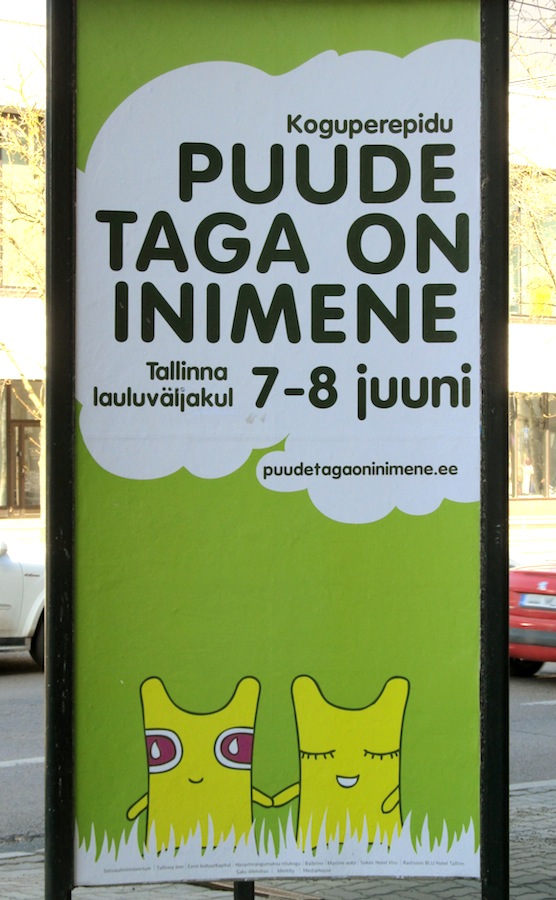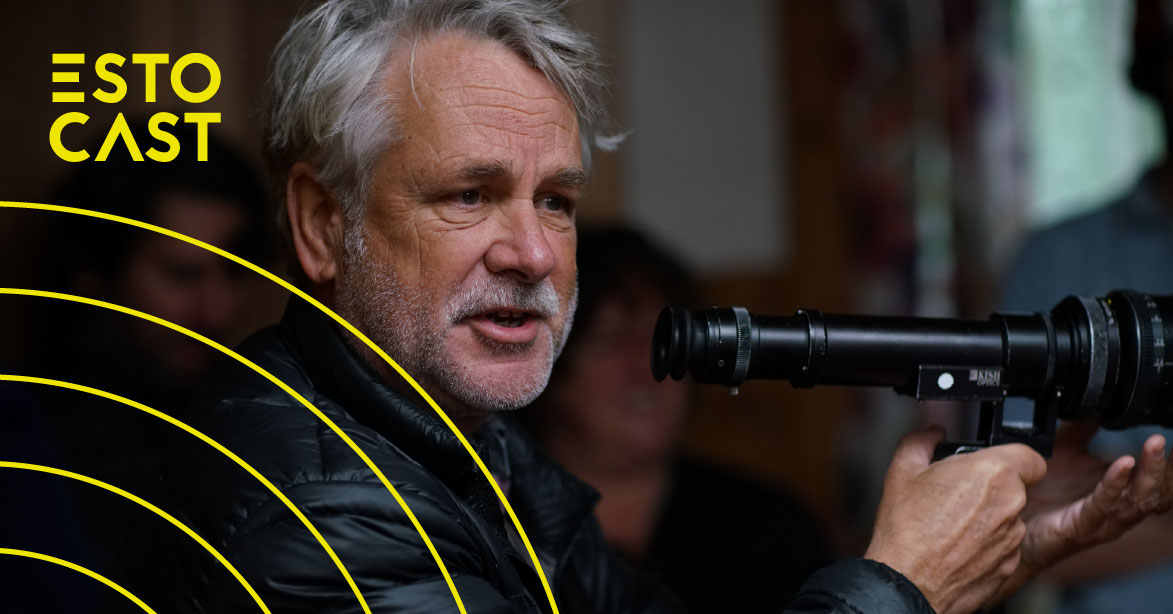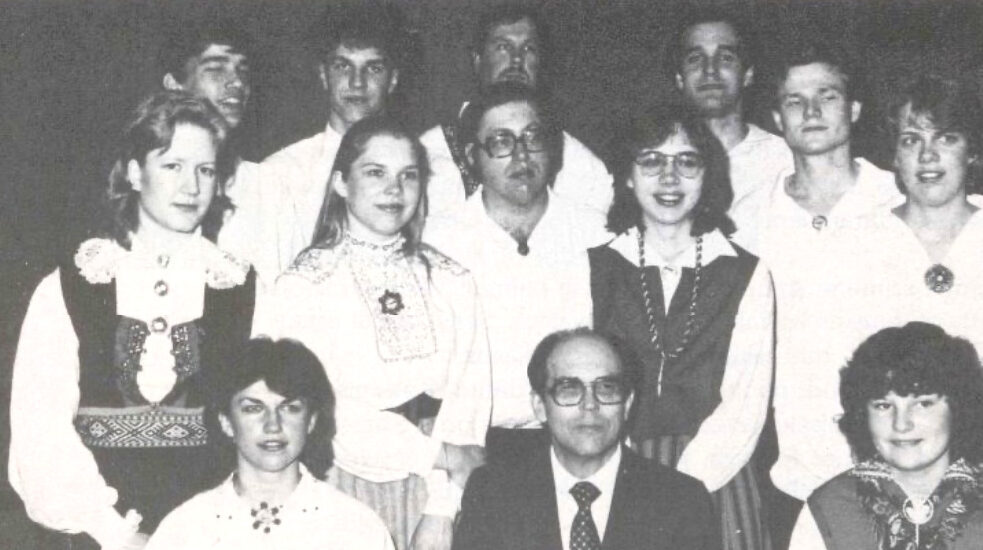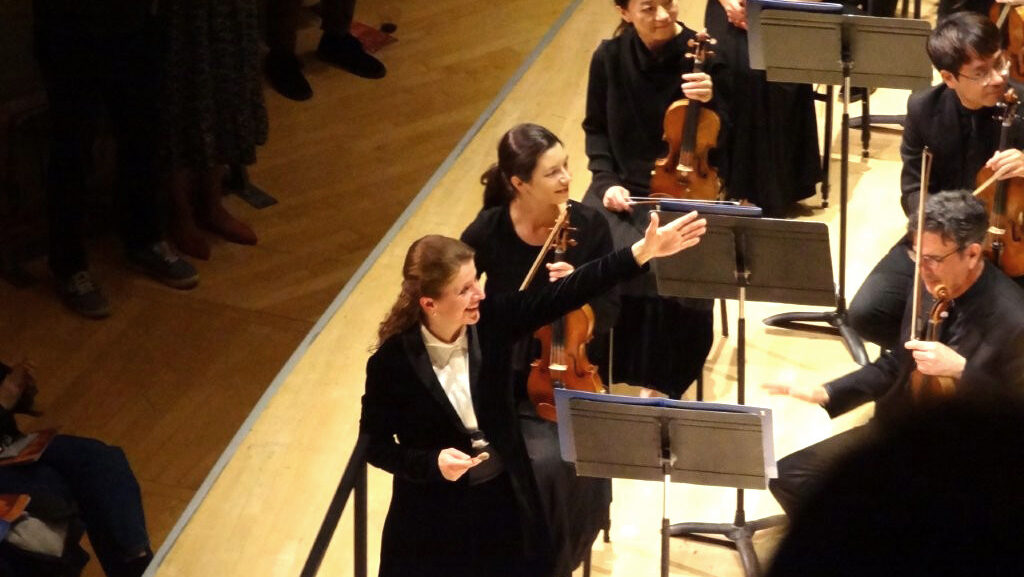But increase the length a little on puude, keeping in mind that the stress (rõhk) of Estonian words always falls on the first syllable. PUU-de, pronounced in the maximum or overlong degree (kolmas välde) is the genitive or possessive case of PUUE, meaning disability or impairment, from the word puuduma – to be missing / lacking something. In the case of this pronunciation, the poster reads “there is a person behind the disability” and is inviting everyone to the kogu/pere/pidu or party for the entire family at the Song Festival grounds (laulu/väljak) next weekend.
Photo: This message on this poster can be read in two ways, depending on the quantity degree (length of sound) of the first word. There are three contrastive quantity degrees (välted) or degrees of pronunciation of Estonian words: short, long and overlong. In this case, you would most likely instinctively pronounce the first word as long (2. välde), yet in this intentionally tricky, double entendre case, it's meant to be pronounced as overlong (3. välde). The resulting meaning is completely different. Photo: Riina Kindlam
Sülvi Sarapuu, the woman behind the event's genesis, introduces it as follows: “Our party for the entire family was inspired by similar festivals in Finland. These are fun events, where the hea/olu (well-being) and ligi/pääs (access) of as many people as possible has been taken into consideration and culture is accessible to everyone. Accessibility (ligi/pääs) and availability (kätte/saadavus) are nothing more than kaasatus (involvement, kaasama = to involve / bring along) and osalus (participation), or that which we all need, regardless of sugu (sex), iga (age), puue (disability), tõeks/pidamised (values), seksuaalne suundumus (sexual orientation) or rahakott (wallet; the contents thereof).
We would like to bring the concepts of ligi/pääs and kätte/saadavus to the Estonian argi/päev (“weekday”, everyday); so that the organisers of cultural events today and in the future will see the big picture (i.e. the forest for the trees) in their work and help make our society a more salliv (tolerant) and hooliv (caring) place on the shores of the Baltic Sea. With every new person on board we will diminish (kahandame) the societal rift in communication (ühiskondlikku suhtlus/lõhet) and make kultuur accessible and available for all.” (www.puudetagaoninimene.ee)
As for hearing the different quantity degrees or lengths of pronunciation (N.B: they are not indicated in written language), a good example to remember is rooster – kukk, like all single syllable words in Estonian is in the maximum, overlong or 3rd välde, since the stress is piled up high on that one little syllable. Turn kukk into the possessive, (two syllable) kuke and it's softer; long as opposed to overlong (2nd välde). Kuke saba – the rooster's tail. But kukke (dative case, osastav, mida?) is overlong once again. Ära kukke ärrita – don't aggravate the rooster.
What case you're dealing with and which degree or välde it is, is not important. What's key is simply being aware of and hearing the difference, since it's of great help in Estonian spelling conundrums and who hasn't had those!
Lõke and lõkke is a stickler that immediately comes to mind. A lot of people assume the singular nominative (ainsuse nimetav) of campfire is spelled lõkke. In this case, only a direct comparison of the correct LÕKE vs LÕKKE will help. Say lõkke/puud (wood for the fire) out loud. And now hellakeste lõke. Hear the difference of length and stress (that handy thing we call välte/vaheldus)? We were invited lõkkele (heavy k), but what we saw burning, was the lõke (single k). When in doubt, say it out loud in the single and double, long and overlong or however you want to call it. It separates the trees from the forest. Raputab puudujäägid puude tagant välja.
Riina Kindlam, Tallinn




